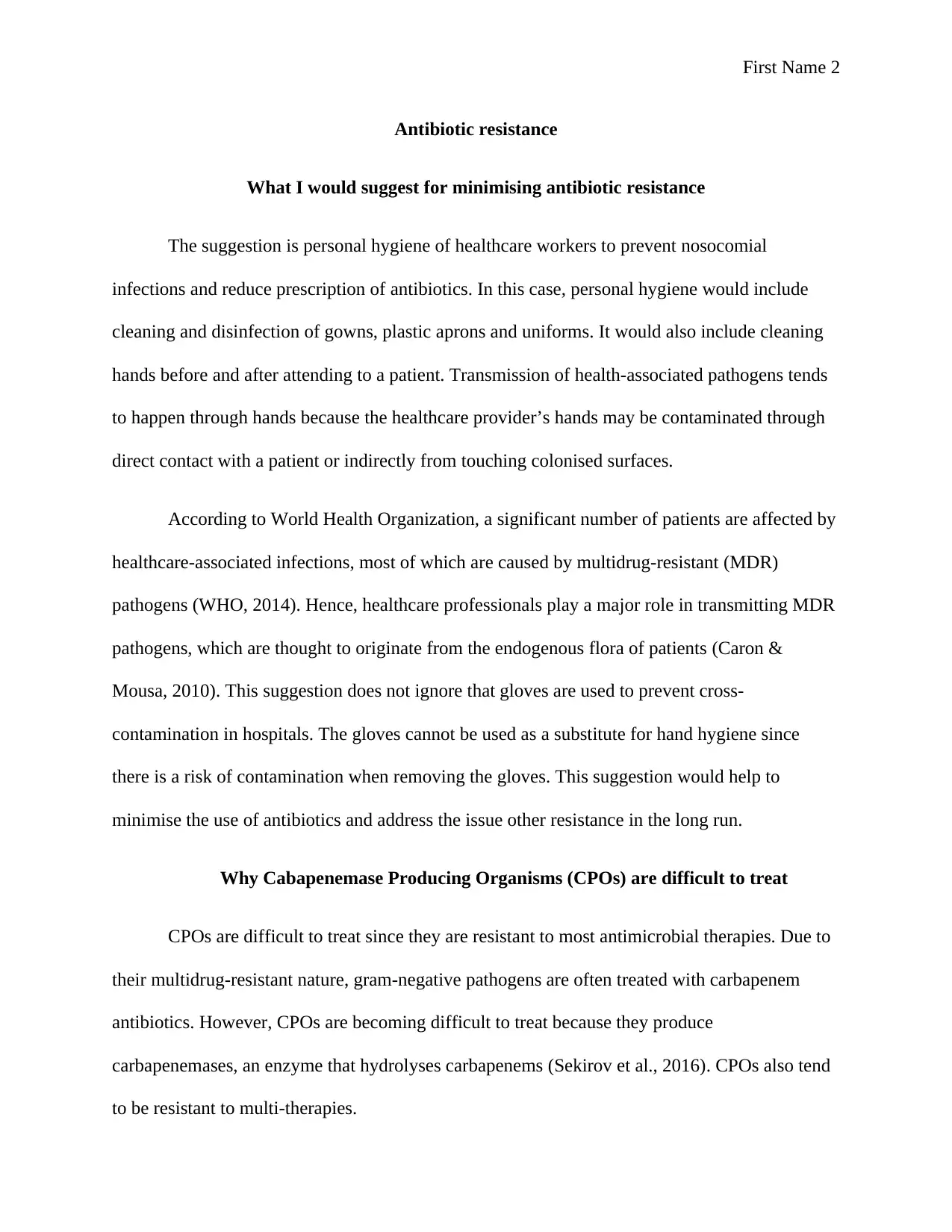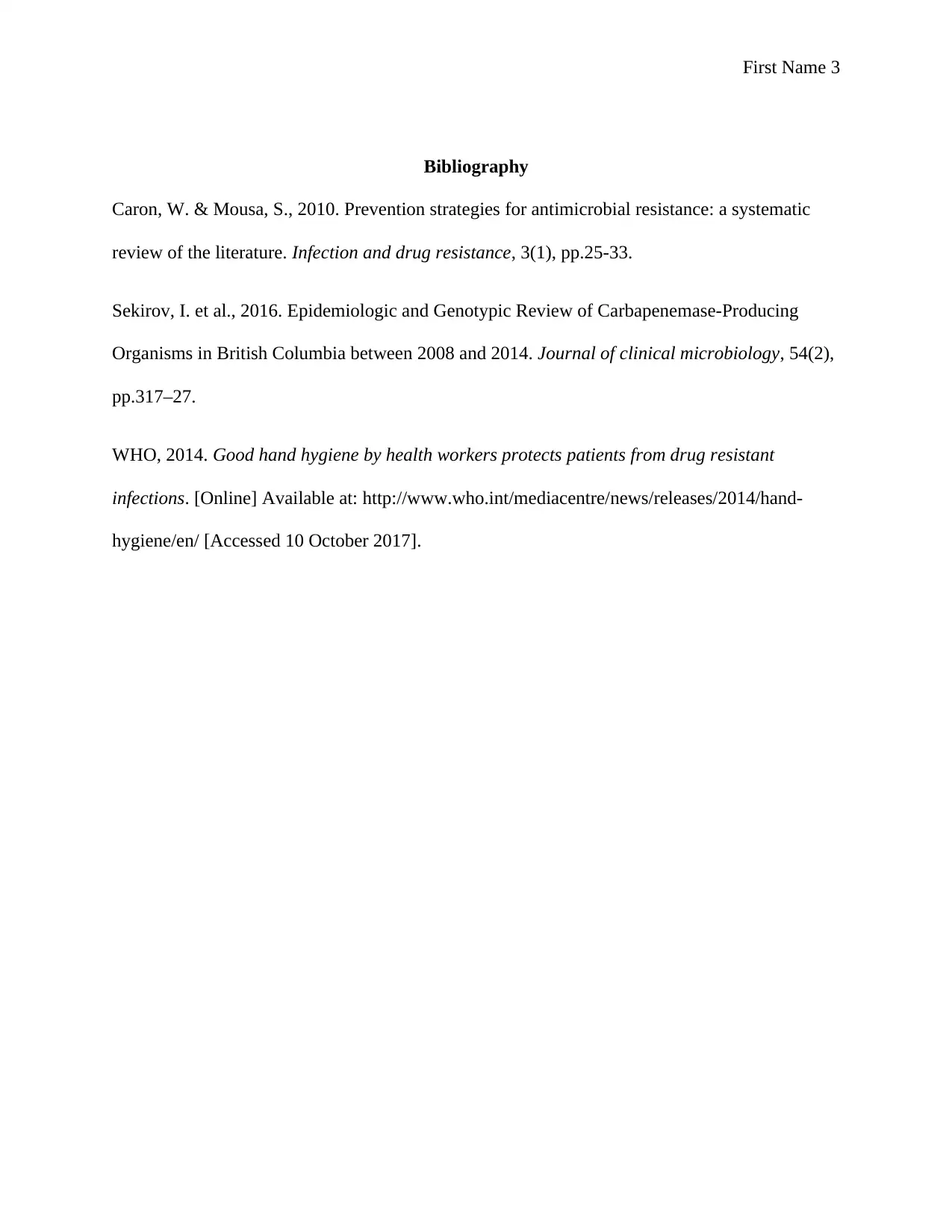Antibiotic Resistance Report: Healthcare Worker Hygiene and CPOs
VerifiedAdded on 2020/05/11
|3
|422
|72
Report
AI Summary
This report addresses the critical issue of antibiotic resistance, emphasizing the importance of healthcare worker hygiene in minimizing infections and reducing the need for antibiotics. It suggests that proper cleaning and disinfection of gowns, aprons, and uniforms, alongside rigorous hand hygiene practices, are crucial in preventing the transmission of health-associated pathogens. The report highlights the role of healthcare professionals in spreading multidrug-resistant (MDR) pathogens, which are often derived from patients' endogenous flora. Furthermore, it explains why carbapenemase-producing organisms (CPOs) are difficult to treat due to their resistance to most antimicrobial therapies, particularly carbapenems, and their ability to produce carbapenemases. The report references key literature to support its claims and provides valuable insights into combating antibiotic resistance.
1 out of 3








![[object Object]](/_next/static/media/star-bottom.7253800d.svg)